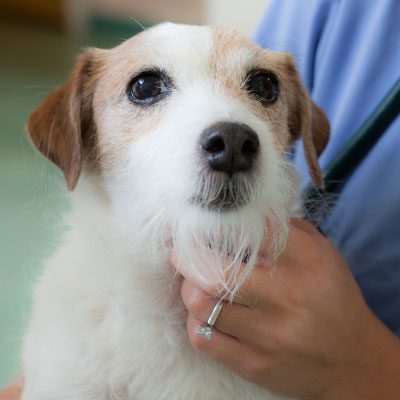Did you know that dogs can develop many of the same dental problems as people can? Fido can be afflicted by a wide variety of dental issues, including gum disease; abscesses; and cracked, misaligned, or broken teeth. These problems can be very painful for your beloved pet, and can also lead or contribute to other health issues. Since Fido can’t tell you if his teeth hurt, you’ll want to be aware of what to watch out for. In this article, a Live Oak, FL vet lists some common signs of doggy dental problems.
Bad Breath
Bad breath is one of the most common symptoms of dental issues in dogs. If Fido’s doggy kisses make you wince, he may need those choppers checked.
Loss of Appetite
Dental problems can make chewing painful, which can cause Fido to lose enthusiasm for food, or show a marked preference for softer foods. It’s also worth noting that a loss of appetite can be a sign of many different medical problems in our canine pals: contact your vet immediately if your dog isn’t eating.
Visible Buildup
If you can see gunk built up on your pet’s teeth, there’s a good chance that Fido needs some dental care. Your vet can remove this unsightly tartar buildup. This will help battle infection and inflammation, and fight gum disease.
Swelling
Visible swelling is another common sign of dental trouble in our canine pals. If Fido’s face or mouth seems swollen, he could have dental trouble.
Excessive Drool
We know, our canine friends can be a bit slobbery, but keep an eye out for abnormal drooling. Excessive, ropy, or bloody drool can all indicate dental problems in Man’s Best Friend.
Reduced Interest In Play
Fido may not be as eager to play fetch or Tug-O-War if his choppers are hurting him. He could also lose interest in his chew toys.
Doggy Dental Care Tips
The best thing you can do for your pup’s teeth is to brush them regularly with a doggy toothbrush and toothpaste. Dental-formula kibble and treats can also help keep Fido’s mouth healthy. We also recommend giving your pooch suitable chew toys. Last but not least, make sure your dog always has plenty of fresh, clean water. Ask your vet for more information.
Does your dog have any of these symptoms? Call us, your Live Oak, FL animal hospital, today!



